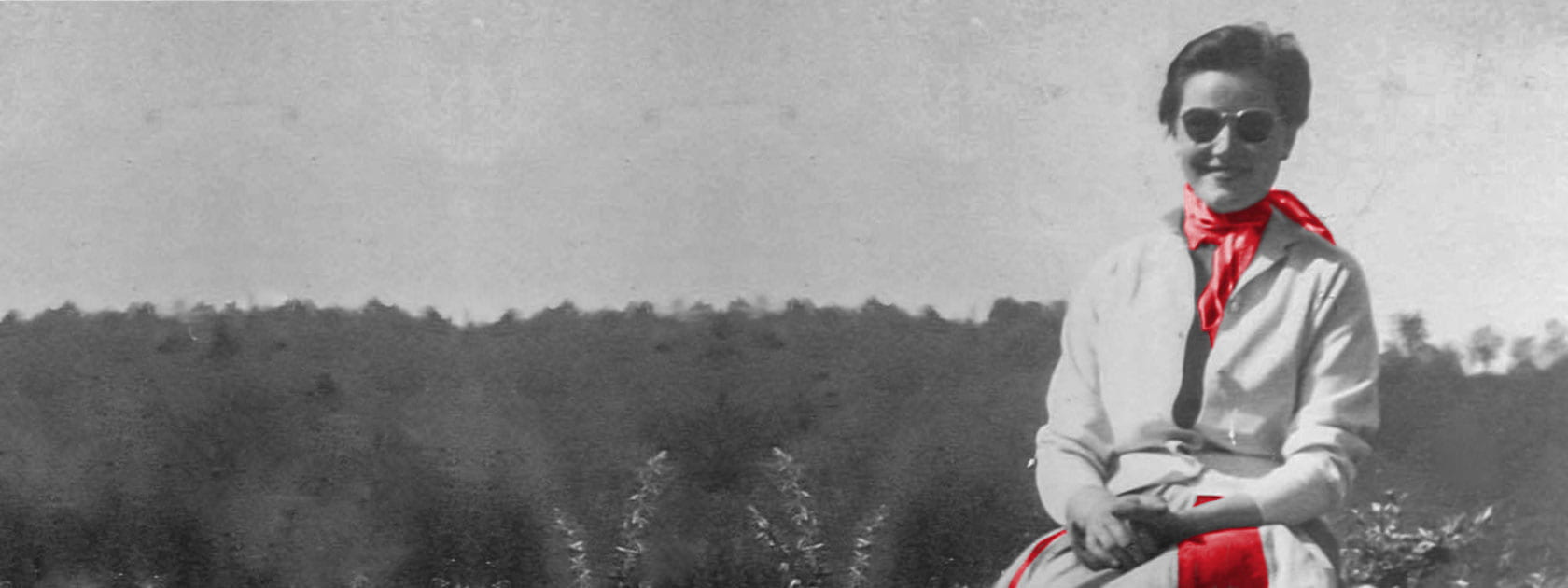Written by Jordan Pezzo
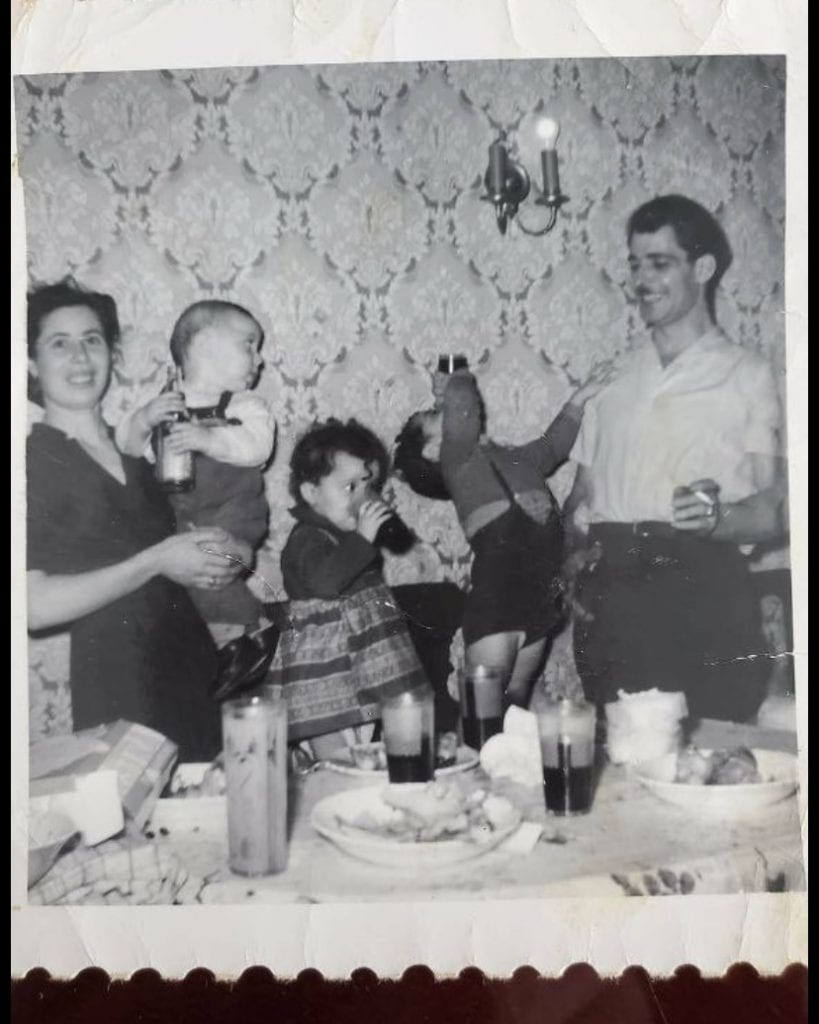
This interview project will cover Vittoria Pezzo’s recollection of her travel into and first experiences within Canada, with the aid of her son Giovanni (John) Pezzo acting as a translator and witness to her testimony. This project includes the video recording of the interview, in 3 parts accessible by link on YouTube, a transcript of the interview, and some historical artifacts showing Vittoria Pezzo’s documentation coming into Canada.
Table of Contents
Introduction
The objective of this interview project is to document my great grandmother and her son’s journey to Canada from Italy. The methods used to document this immigration story include a recorded oral history which will also be transcribed, as well as collecting a personal archive that will contain images of documents, passports, and old photographs. These will be used to create an informative visual report to illustrate their story. The goal is to preserve their experience as part of preserving the Italian-Canadian immigration experience in general.
Interview
On October 2 2022, I visited my Nonna Vittoria’s home in Toronto. I spoke earlier with my Nonno about my interest in interviewing him for a school assignment documenting Italian immigrant stories, and he suggested doing a joint interview with his mother. Together, they prepared some documents and photographs for me to use in this project. I was able to see historical records of Nonna Vittoria’s travel from Sant’Onofrio, to Naples, to Halifax, and finally to Toronto. It is important to record these historical moments of an Italian immigrant coming to Canada post-world war 2. I also was able to learn a lot about my Nonna Vittoria during this interview. There is a language barrier between us, with English being her second language and me sometimes struggling to understand her accent, but with the help of my Nonno I learned a lot about her life. I learned how much of a fearless, motivated, and ambitious woman she is. She came as a grown woman with children and still wanted to adapt to this new country. She learnt the language and immersed herself in the culture, and she even began to dislike some parts of her home country in comparison. It was very enlightening to be able to witness her retelling her life stories from being sick on the boat to learning that she did not like English bread, she struggled to learn a new language but not giving up, and eventually fell in love with the city of Toronto.
Transcript of Interview
Analysis and Reflection
In this interview, I chose to interview my grandfather John and great-grandmother. My Nonna Vittoria came to Canada when my Nonno was just a baby, and I heard lots of stories about what it was like for him growing up in Canada. I never really spoke with my Nonna Vittoria about her experiences before. Part of the reason for this is a language barrier between us exists. She taught her son, my grandfather, how to speak Italian, but he did not pass the language on to his children or grandchildren. Nonna Vittoria does speak English, but sometimes I find it hard to understand what she is saying due to her accent and the way she words things differently than how I’m used to hearing it. Going into this interview I expected some difficulty in language, which is why I was thankful my Nonno was there so he could translate anything she or I didn’t understand. I also expected to learn a lot since I never had a candid conversation like this with my great-grandmother ever before, I only know about her life through the perspective of her sons and daughters. I thought this would be a great opportunity to also help me feel more connected to my Italian heritage since I struggle with feeling Italian-enough in my identity. If I knew more about her life, maybe it would let me know more about mine. My assumption about the language barrier being difficult was correct, without my Nonno there I doubt the conversation would have been able to become in depth. However, I did find that my Nonno seemed to have a different way of wording things, instead of directly translating the question. I assume he did this to make it easier for his mother to understand the question, so I did not question him about this. I trust his ability to translate, all of Nonna Vittoria’s responses were insighpul. I learned she had a store for a few years when my Nonno was a child, which I was never told about until now.
This experience proves significant on many levels. On a personal level, I got the chance to learn more about my family’s history. I learned more about my great-grandfather who I never got the chance to meet. My Nonno Basilio died in March of 1996, 4 years before I was born. I was told he was a strict, stubborn, yet extremely family-oriented man, and everything my Nonna Vittoria said about him confirmed that. My uncle is named after him, and my great-grandmothers home is filled with photos of him and the family they created together. I was also somewhat surprised at how much my great-grandmother remembered about the past. She is 93 now, so has lived a very long life, but she seems to remember most of these stories like they just happened not too long ago. Of course some details she could not remember, but I was surprised at the amount of knowledge and memories she was able to share with me.
This interview also proved significant to my academic and professional development. I’ve always found interviews to be tedious, especially ones that are more rigidly structured, with no room for any open or natural discussion. I prefer learning through conversations where both people have space to ask questions and share their experience. I find this way allows me to more accurately understand what the other person is saying. It also feels more organic and genuine. This interview was structured in a semi-rigid way, so everyone in the class had the same questions that we were required to ask, but we were also free to ask follow up questions as long as we made sure to transcribe. I think this experience taught me that clear communication is an essential skill in interviewing someone. You also have to know how to properly word questions to get a response that would be insighpul and not just result in simple a yes or no. Another way this experiences significantly impacted me in an academic sense is through teaching me that documenting Italian-Canadian immigrant experiences is a current, ongoing situation. Since I grew up exposed to this side of the culture and heard lots of stories, I assumed these histories were widely known. Especially since the Italians I know in Toronto (where I grew up) all immigrated to the same areas and oden either know each other or at least have a mutual relation. I learned there is still a lot of documenting that needs to be done to immortalize their experiences, and that outside of Italian-Canadians, their stories aren’t widely known.
This interview had an impact on me. It allowed me see my great-grandmother and grandfather from a new perspective. I could tell my Nonna Vittoria enjoyed reminiscing about the past. If I were to conduct another interview like this, I think I would allow myself more time to process the answers given to ask before follow up questions. When transcribing the audio, I found there were some statements made that I wish I questioned more, but at the time my priority was to ensure all the questions got asked and to not go over roughly 15 minutes. Additionally, I would prefer to conduct the interview with an Italian language student or someone who is fluent in the language. While my grandfather was helpful in translating the questions, I think having a student who understands the course material and the type of information that would be more relevant would be great. I think another thing that would be interesting is if the questions asked a bit more about experience during or the effects of World War II. My family does not speak about that time often, so everything my great-grandmother shared was the first time I heard it. I would love to know more about what it was like for her—to be 10 years old during a war. In future interviews I will definitely spend more time in the planning stages and perhaps consider multiple methods of recording. Instead of just video or just voice, I will take notes as well which will allow me to process what is said and ask better follow up questions.
Gallery
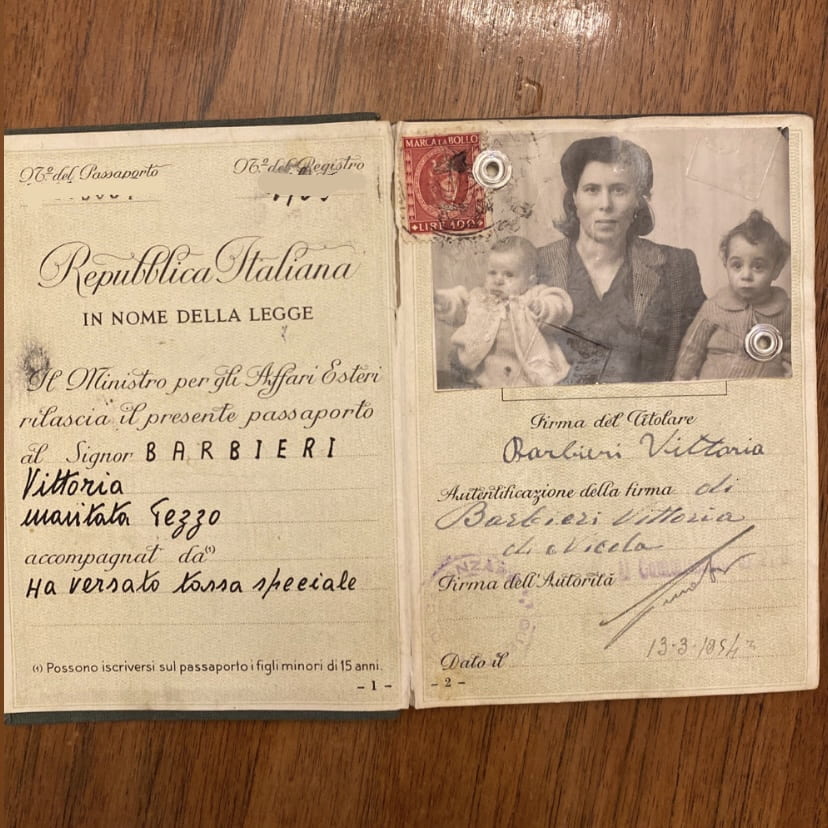
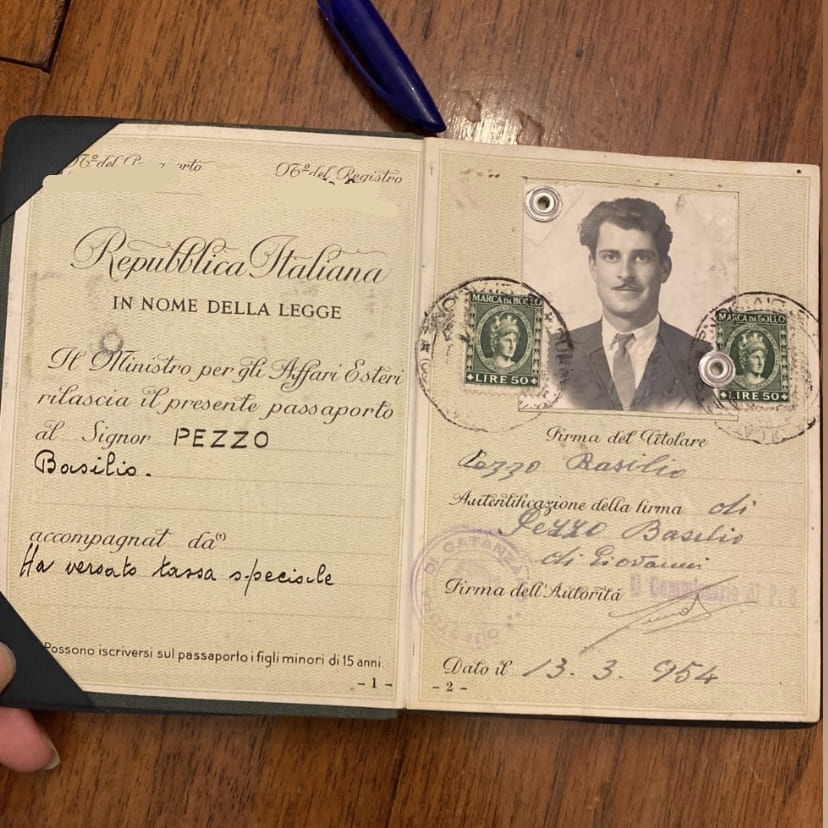
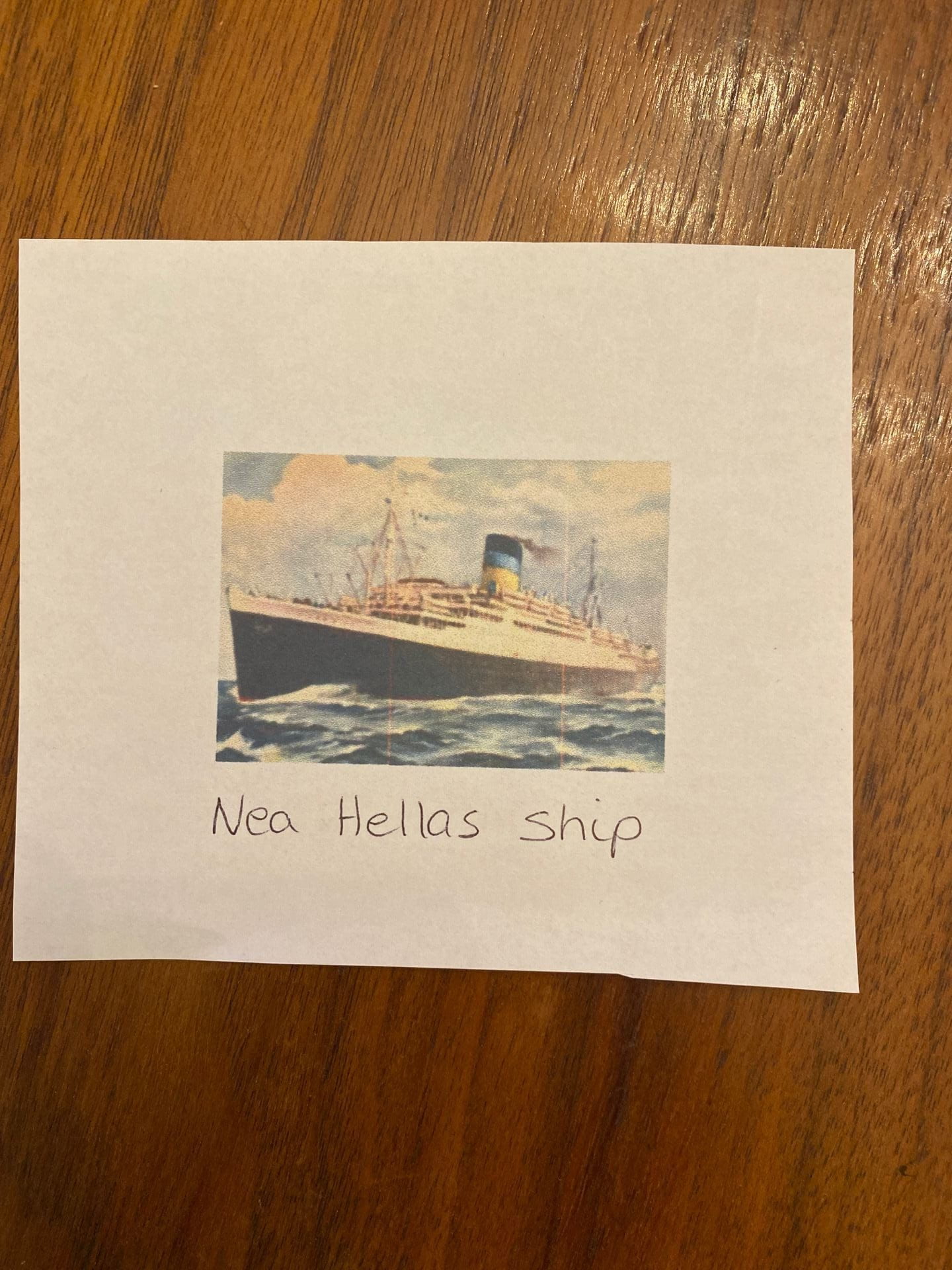
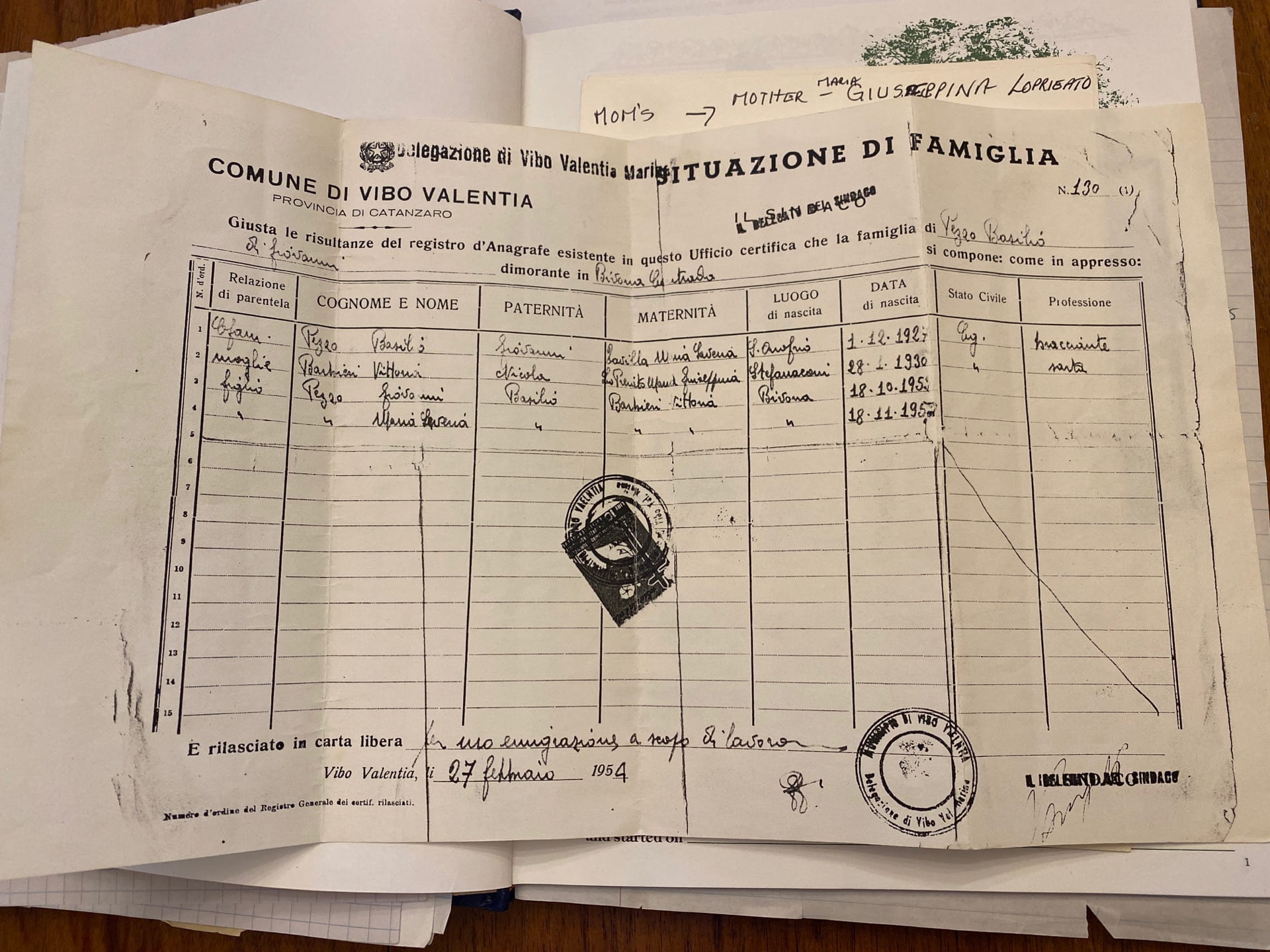
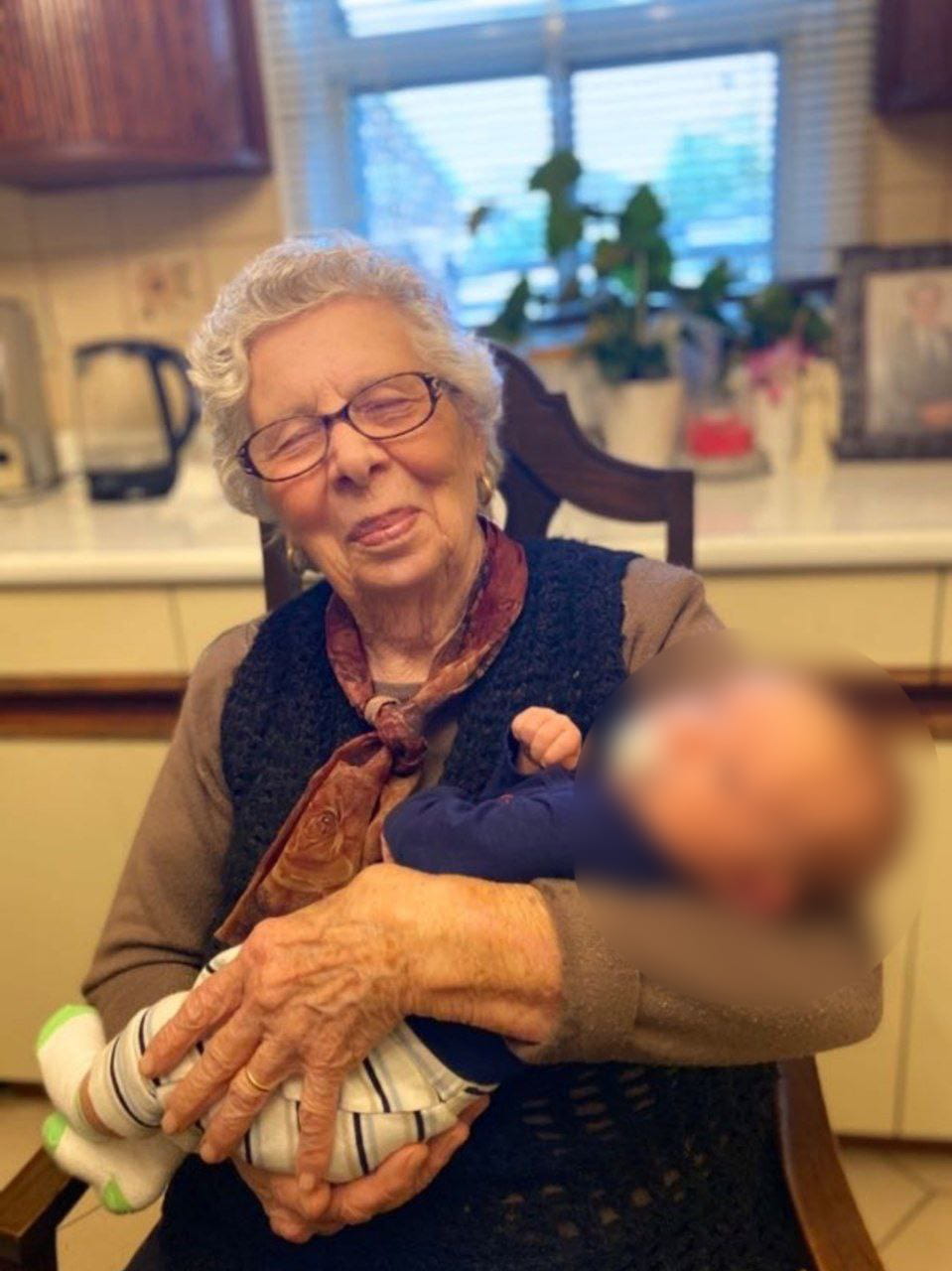
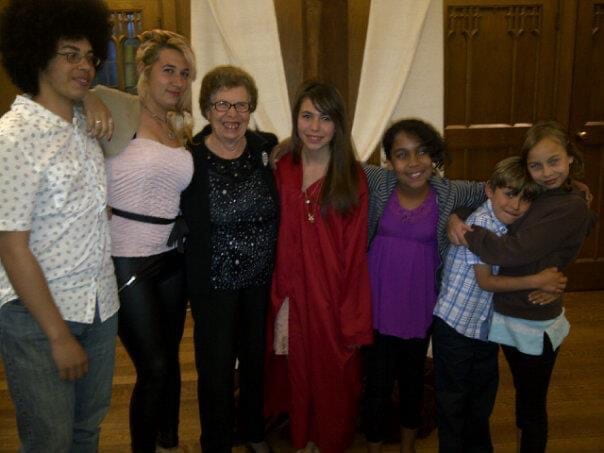
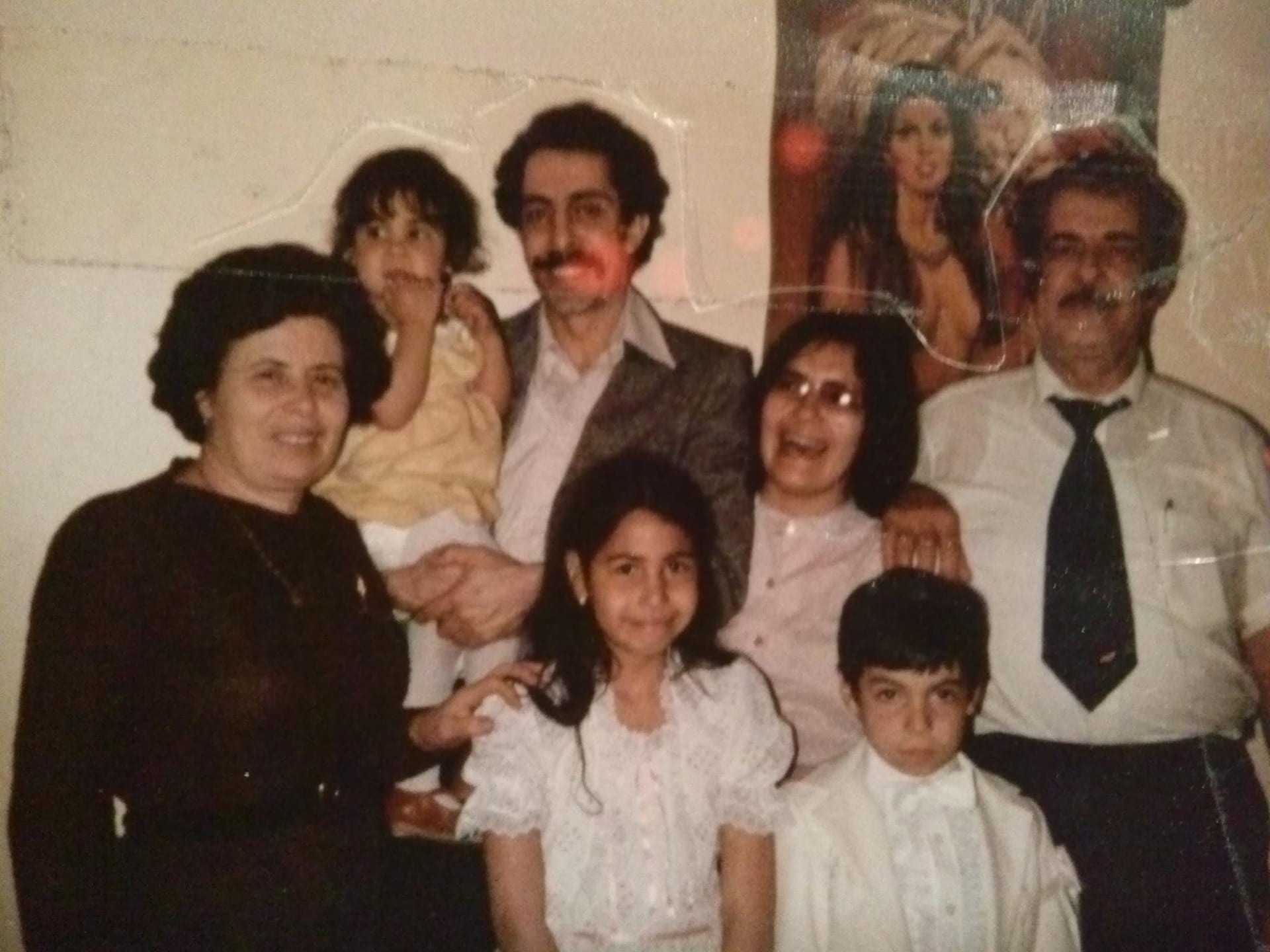
Bibliography
All photographs included have been approved for sharing from the private collection of Vittoria Pezzo and John Pezzo.
Pezzo, Jordan. “Vittoria Pezzo and John Pezzo Coming to Canada (Part 1).” YouTube. 2 October 2022. https://youtu.be/GNZGLCAk1sE; access at Italian Communities in Canada: Heritage, Cultural and Ethnographic Studies as of November 2022, www.italianheritage.ca.
Pezzo, Jordan. “Vittoria Pezzo and John Pezzo Coming to Canada (Part 2).” YouTube. 2 October 2022. https://youtu.be/xT-Rnwx_MxY; access at Italian Communities in Canada: Heritage, Cultural and Ethnographic Studies as of November 2022, www.italianheritage.ca.
Pezzo, Jordan. “Vittoria Pezzo and John Pezzo Coming to Canada (Part 3).” YouTube. 2 October 2022. https://youtu.be/OOLpj4a0RwI; access at Italian Communities in Canada: Heritage, Cultural and Ethnographic Studies as of November 2022, www.italianheritage.ca.
How to cite this page
Pezzo, Jordan. “Vittoria and John Pezzo’s Journey to Canada”. In Italian Communities in Canada: Heritage, Cultural and Ethnographic Studies, suprv. Teresa Russo. University of Guelph, 30 November 2022, Guelph (https://www.italianheritage.ca/2022/11/30/vittoria-and-john-pezzos-journey-to-canada/). Italian-Canadian Narratives Showcase (ICNS), Sandra Parmegiani, Kyra Bates, and Gurpreet Kaur.


